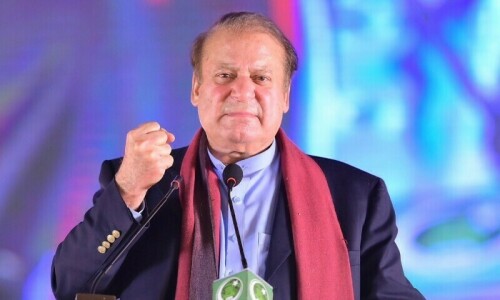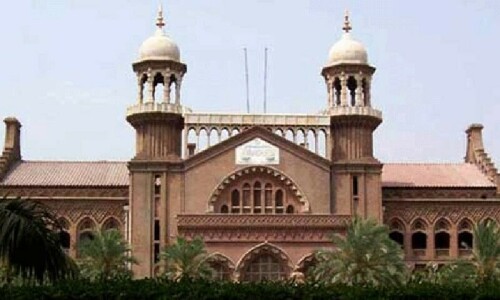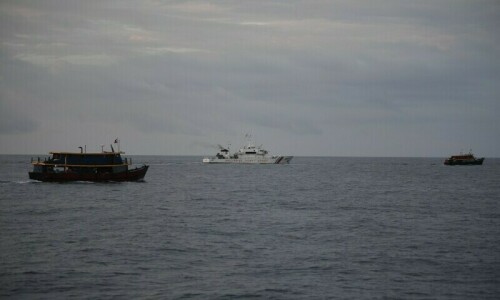ISLAMABAD: After having been accused by Afghanistan of pushing a power-sharing formula involving the Taliban, the Foreign Office on Monday defended Pakistan’s role in the war-torn country and said it always tried to make a positive contribution.
“Pakistan wants to see a peaceful, united, prosperous and stable Afghanistan. To that end Pakistan has been making constructive contributions,” FO spokesman Aizaz Chaudhry told Dawn.
During a meeting with Afghan Ambassador to Pakistan Umer Daudzai on Friday Foreign Affairs and National Security Adviser Sartaj Aziz had proposed a power-sharing formula involving the Taliban and other stakeholders in Afghanistan for ending the war there.
The proposal did not go down well with the Afghan government which was already critical of Pakistan’s involvement with the Taliban.
Afghan President Hamid Karzai had during a press interaction over the weekend, after his talks with visiting British Prime Minister David Cameron, lashed out at Pakistan for trying to divide Afghanistan into Taliban ‘fiefdoms’.
“For six months there have been efforts to bring fiefdoms to Afghanistan,” Mr Karzai said, adding that Islamabad was trying to get Taliban into power in “one or two” provinces.
In an interview with Reuters on Monday Afghan Deputy Foreign Minister Ershad Ahmadi disclosed that the proposal had been made by Mr Aziz at a meeting with Mr Daudzai.
According to Reuters, the proposed formula envisaged “a form of federalism and ceding power in some Afghan provinces to the Taliban”.
Pakistan has always tried to play the role of a peace broker in the Afghan conflict. Those efforts were intensified over the past year and a half which led to the setting up of Taliban’s political office in Doha to serve as a point of contact with the insurgent group.
Islamabad’s role in the process, though not fully known yet, was largely about using its clout with the Taliban to persuade them to talk to the Americans and the Karzai government. The initiative, however, soon ran into trouble with the Taliban naming the Doha office as political office of the Islamic Emirate of Afghanistan and raising a flag.
Mr Karzai protested and the name and flag were removed by the Qatari authorities.
Intense diplomatic activity followed to salvage the process by pacifying agitated Karzai and trying to improve relations between Kabul and Islamabad.
Mr Karzai has agreed to get past the Doha office opening controversy, but his scepticism about Pakistan and the latter’s negative view of Karzai coupled with its obsession with the Taliban are preventing things from moving forward.
The ties are instead deteriorating and at a faster pace.
Afghanistan also feels offended by Pakistan’s frequent calls for an intra-Afghan dialogue. An Afghan official, speaking over phone, explained that the Afghan government believed that there was no need for intra-Afghan dialogue in the presence of an elected government and other functioning state institutions.
US Special Representative for Afghanistan and Pakistan James Dobbins told Dawn: “Taliban desired to share power, but wanted a bigger share than what others might give them.” He thinks Pakistan enjoys significant influence over Taliban, but was not in a position to dictate terms to the insurgent group.
Pakistan and the US also differ significantly in their reading of the situation in Afghanistan. Pakistani assessment is that the Karzai administration has a nominal control over the country, while Taliban influence was growing.
The Americans to the contrary think that Afghanistan has made significant progress since the Taliban days and its people would not like to see the situation reversed. They (US) believe that Taliban may be militarily a significant force, but not a dominant one.
A Pakistani source expected status quo in reconciliation efforts to continue till US Secretary of State John Kerry’s anticipated visit to Islamabad later this month. “Much depends on talks with him (Kerry), where we will put our perspective on the table,” he said.














































